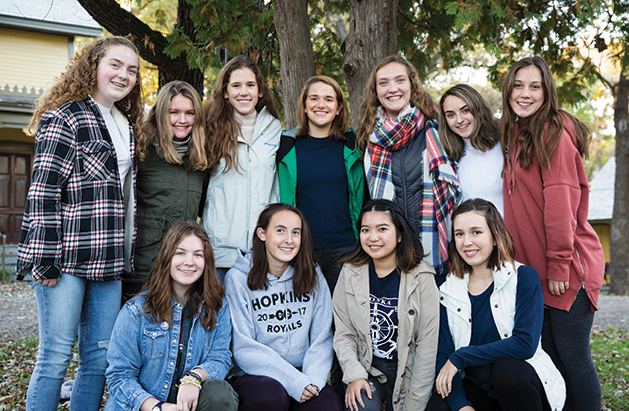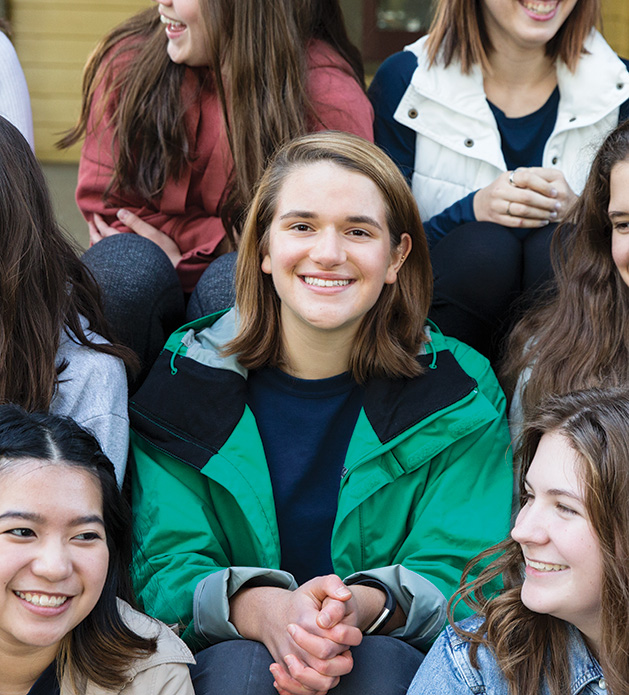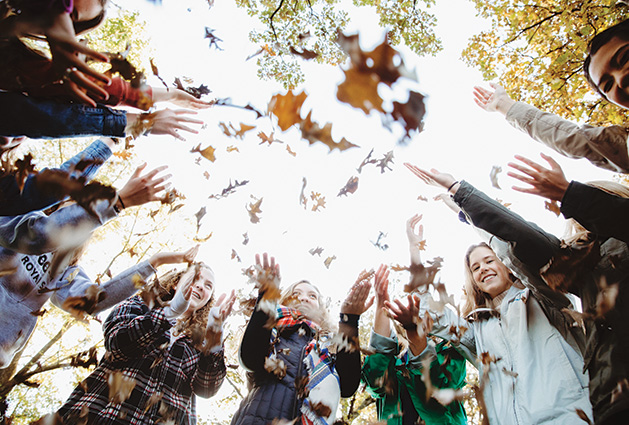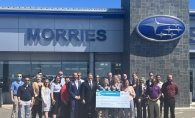
When Minnetonka teen Lia Harel, 18, speaks about her commitment to the environment, her voice is clear, sure and brimming with determination. “Climate change and what’s going on with the environment is something that people are aware of,” she says, “but [they] don’t always realize it touches poverty, politics, food security, infrastructure and public health.” Lia is one of the leaders of the Hopkins High School Earth Club, and along with her fellow club members and members of the Minnetonka High School Earth Club, she is taking her beliefs, drive and commitment all the way to the lawmakers.

The students were first inspired by their neighbors at the St. Louis Park High School Earth Club. “About two years ago, the [former] president of the Hopkins club heard about an initiative that St. Louis Park High School did,” Lia says. “They passed a climate action plan and committed their city to one of the most aggressive climate plans in the state.” Following those footsteps, the Hopkins and Minnetonka clubs partnered with national nonprofit iMatter (which empowers kids and teens to take action on environmental issues) to calculate a Climate Report Card for the city of Minnetonka based on four categories: Zero Emissions Climate Action Plan, which measures when the city’s climate action plan gets to net zero human emissions; Renewable Energy, measuring when the percent of renewables used to generate a city’s electricity is more than the national average; Waste, measuring when the amount of waste per person is decreasing and the percent of that waste that is recycled or composted is increasing; and Carbon Removal, measuring when there is a program in place that will result in more carbon being removed from the atmosphere. The students spoke to city planners, gathered relevant information and then put the info into a report card generator provided by iMatter.

Once everything was calculated, the city earned a grade that might surprise you: a D+. (Lia says that some of the information used to calculate the grade was out of date, and with new information, the grade might be raised.) The students presented their findings to the city council. “City council had a pretty positive response,” Lia says, “but they were a bit shocked by our findings.” The next step for these determined young leaders is to gain community support. They created a Facebook group, Minnetonka Climate Initiative, and hope to encourage community members to put pressure on the city. “The next goal is to get our resolutions passed,” Lia says. “On April 30 last year, we presented to the council on what we think needs to be done.” This includes encouraging the city to be 100 percent renewable electricity by 2030, net zero greenhouse gas emissions by 2040, and student involvement throughout the process.
Despite the low grade, Lia praises the city of Minnetonka for its work with recycling and initiatives to protect endangered species. “We’re not trying to shame Minnetonka,” she says. “We feel that Minnetonka is a great leader in sustainability [but] we feel like we can just push that to be even more.”
Learn more about how to support the work of climate action students by connecting on social media.









